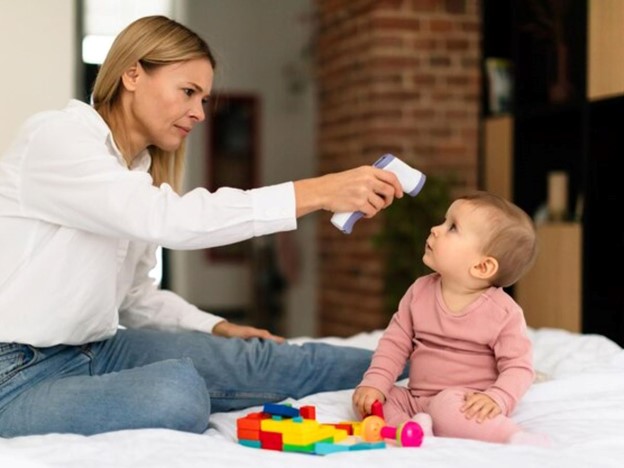Your newborn or toddler’s general health and well-being depend on their getting adequate sleep. From creating a secure sleeping environment to a relaxing evening ritual, several elements help to promote good sleeping practices. The abundance of advice accessible may overwhelm you as new parents or caregivers. Still, your child’s sleep quality may be much improved by understanding where to start and how to approach sleep training. This blog offers sensible Infants and Toddlers care tips to support your child’s improved sleep.
Why Sleep is Essential for Infants and Toddlers

For newborns and toddlers’ brain development, growth, and survival, sleep is very essential. Sleep is not just about rest for infants; it also lays a firm basis for both physical and emotional growth. Good sleep habits improve emotional control, immune system health, and cognitive ability. Inadequate sleep may cause anger, problems with focus, and a spectrum of other developmental issues. Early on, the implementation of Parenting Tips for newborns and appropriate sleep habits can assist your kid in developing good behaviors that will benefit them as they grow.
Creating a Consistent Sleep Routine
Developing a regular sleep schedule is among the best strategies to encourage good sleep. Babies grow best on consistency. Hence, a routine lets your baby know when it’s time to relax. Establish a regular bedtime first, then include a relaxing pre-sleep ritual. One may aid by lowering the lights, playing gentle music, or reading a short narrative. This schedule may help early connections with sleep, even for babies. Using regular bedtimes in line with Infant care tips helps newborns feel calm and safe when it is time for bed.
The Importance of a Sleep-Friendly Environment
The surroundings of your child’s sleep help greatly determine their capacity to fall and remain asleep. The room should be cold, dark, and peaceful to guarantee they receive the finest possible slumber. If needed, take into account utilizing blackout curtains and a white noise machine as outside disturbances like noise and light might disrupt their sleep pattern. Make sure the cot is secure and cozy for Parenting Tips for newborns. Stay clear of stuffed animals or cushions for the crib, as they could cause suffocating problems. Better, longer sleep for your child comes from secure, quiet surroundings.
The Role of Feeding in Sleep
Especially in the first year, your child’s sleeping patterns are highly influenced by feeding. While toddlers can often go longer between meals, infants may have to eat more often at night. Developing a feeding plan that fits your child’s sleep pattern can assist in lowering midnight wakings brought on by hunger. Make sure your baby is well-fed before bed if you want Infant care tips; this will enable them to sleep for longer during the night. Toddlers should not have sweet foods or beverages soon before bed as this will interfere with their capacity to relax and go to sleep.
Conclusion
Encouraging good sleeping patterns for your child or toddler is a road trip needing understanding, consistency, and time. Better sleep patterns for your kid will result from a regular bedtime schedule, a safe sleep environment, napping management, and addressing of sleep regressions as they develop. Although every kid is unique, these newborn parenting suggestions will provide a strong basis for improving the quality of sleep for your infant. Healthy Child is here to help you build good, peaceful habits for your young one, as we know how difficult it may be to negotiate the early years of parenthood.










